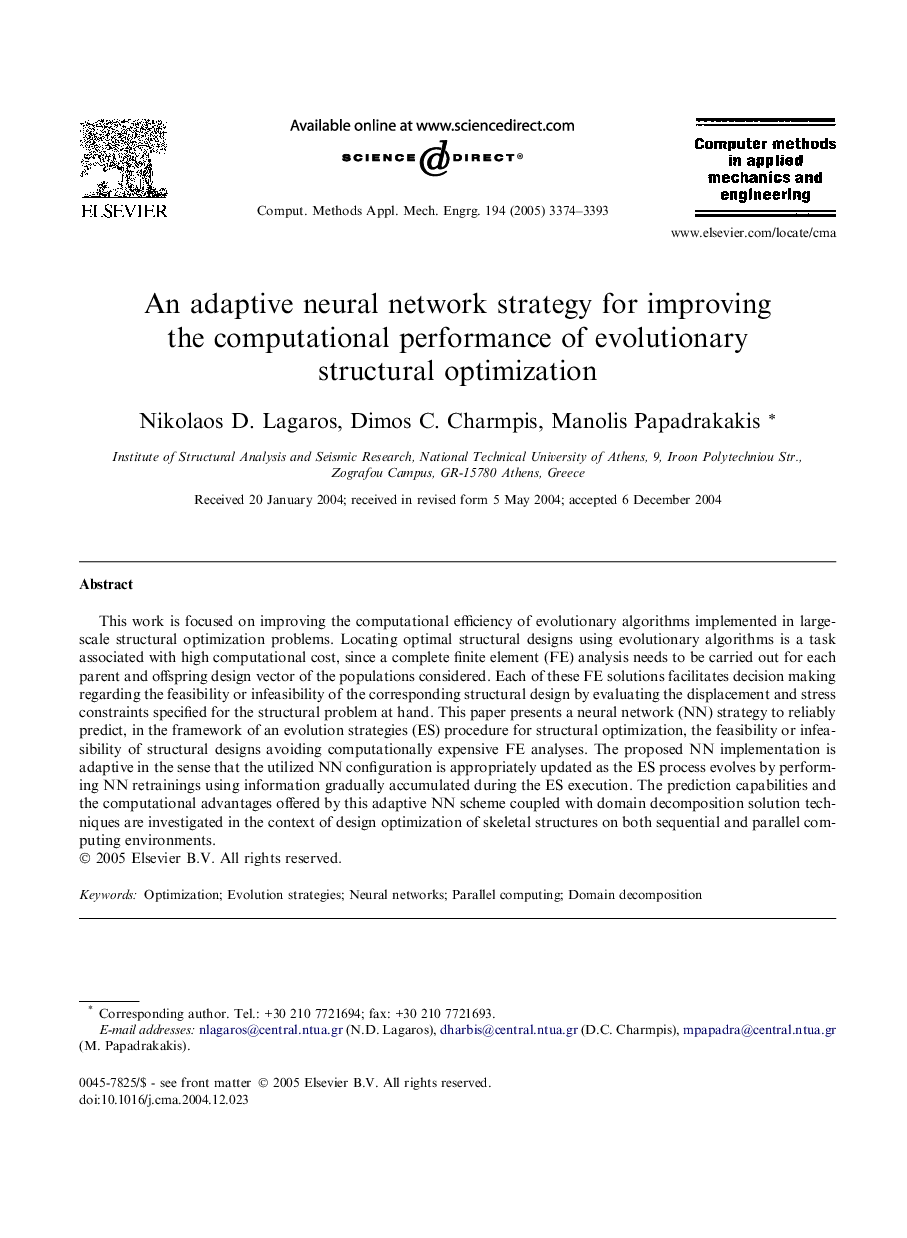| Article ID | Journal | Published Year | Pages | File Type |
|---|---|---|---|---|
| 500822 | Computer Methods in Applied Mechanics and Engineering | 2005 | 20 Pages |
This work is focused on improving the computational efficiency of evolutionary algorithms implemented in large-scale structural optimization problems. Locating optimal structural designs using evolutionary algorithms is a task associated with high computational cost, since a complete finite element (FE) analysis needs to be carried out for each parent and offspring design vector of the populations considered. Each of these FE solutions facilitates decision making regarding the feasibility or infeasibility of the corresponding structural design by evaluating the displacement and stress constraints specified for the structural problem at hand. This paper presents a neural network (NN) strategy to reliably predict, in the framework of an evolution strategies (ES) procedure for structural optimization, the feasibility or infeasibility of structural designs avoiding computationally expensive FE analyses. The proposed NN implementation is adaptive in the sense that the utilized NN configuration is appropriately updated as the ES process evolves by performing NN retrainings using information gradually accumulated during the ES execution. The prediction capabilities and the computational advantages offered by this adaptive NN scheme coupled with domain decomposition solution techniques are investigated in the context of design optimization of skeletal structures on both sequential and parallel computing environments.
